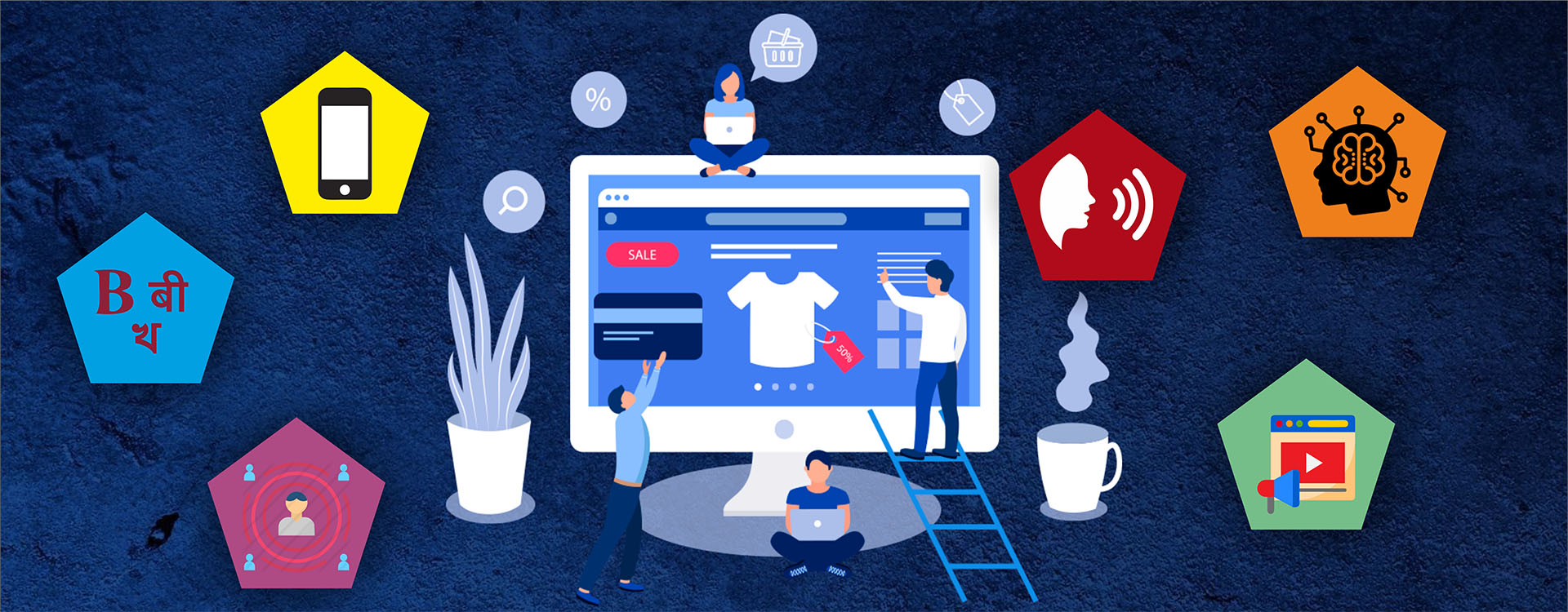Panic buying, reduced spending, quarantine, working from home, travel restrictions, pay cuts, supply chain irregularities, hoping for the vaccine to come are the words that perfectly encapsulated the year 2020. Times like these were equally challenging for the Ecommerce businesses since they had to quickly adapt to novel strategies to allay the fear existing people caused by the pandemic. The fear led to shifts in consumer behaviour and spending and suddenly increased the appetite for technology adoption that gave birth to many first-time shoppers. The Ecommerce marketing landscape that earlier focused on aggressive competition with its counterparts has changed to become a helping hand to the competition or collaborate with them. For instance, the Lifebuoy soap in its full print ad came out openly to speak that hygiene is assured whether it is their competitor’s soap or their soap. As there are multiple players in Ecommerce, the only point of differentiation that an Ecommerce can offer to its audience is through an enhanced consumer experience. Providing an enhanced consumer experience will be an amalgamation of consumer data and behaviour. Below are some marketing trends in Ecommerce that will rule 2021.
Mobile devices and the use of local languages
A recent report from TRAI (Telecom Regulatory Authority of India) states that there are 1.15 billion mobile phone users of which 520.1 million users are from rural India. Ecommerce companies to cater to the first-time users from rural India needs to lower the language barrier. Communicating in local languages increases the engagement with rural audiences since they can relate more and that presents a personalized user experience. As per KPMG, the user base for Ecommerce in local languages has a CAGR of 32 per cent and in the coming next five years, it will add 120 million users.
Since people consume digital content primarily on smartphones, the pay-per-click advertisements due to their cost-effectiveness and ability to adjust campaigns as required will be adopted more by Ecommerce companies. It enables companies to collect consumer insights based on campaign performance, conversion rates, level of engagement and ROI, etc.
Voice Commerce
Speaking takes less time than typing and also enables multitasking. With Google’s commercial featuring Gajraj Rao speaking the benefits of voice search, it is enabling Ecommerce marketers to consider voice search marketing as a part of SEO strategy. The use of keywords and phrases is slightly elaborate while we speak than type. Thus, including them will enable the brand to rank higher when the words are uttered.
Google says that currently, more than 20 percent of the search queries are from voice searches. Hence, voice commerce is emerging as one of the most promising marketing trends. The voice search strategy will prove to be beneficial to the rural masses who are not comfortable to type or read in English. They might use a voice search to search for a product, nearby hospital or restaurant, etc. Reliance Jio’s affordable handsets have a stronghold in rural India, that has the voice search feature even though it is not android.
Video Marketing
The emergence of short-form video apps like Josh and Moj, FB Live, and YouTube video channels has fueled the growth of consuming video content. Shoppable videos have started getting popular on platforms on Facebook and Instagram. The newly added short form reel feature on Instagram has a shopping option. With engaging and relevant content, it can strike the right chord with its target audience. YouTube is the second largest search engine, and what better can be for a company if they can bring up relevant content surrounding the products or service. The genre of the content can be entertainment, DIY, Tutorial, or educational which will offer an immersive experience. Any properly tagged video will rank higher on the search page.
Machine learning and Artificial Intelligence
The data is the asset and lifeline of any business. Under AI, tools such as collaborative recommendation suggests product to customers based on the historical data of past customers’ previous product purchases. The use of AI chatbots establishes seamless communication with customers instantly that gives companies adequate data to know and track consumer behaviour and provide personalized answers to address customer queries.
Using marketing trends like Machine Learning (ML), the e-commerce industry is going to reach new heights. Through ML, we can customize search results based on past purchases and browser history.
The era of influencers
Smartphones have given the power to Gen Z and millennials to convey their knowledge, opinion, and experiences to the masses. And with now everyone owning a smartphone, the creators are booming. As they already have an admiring fanbase who loves their authentic content creation, the e-commerce companies can push their products, for which they do not have to work extra to gather views. For instance, Myntra and Amazon are already utilizing marketing trends such as influencer marketing by roping in fashion influencers like Komal Pandey and Siddharth Batra to showcase their apparel and encouraging people to buy the look.
The previous year was about observing the new market changes, this year e-commerce companies will be capitalizing on the changes and developing a niche for themselves.




